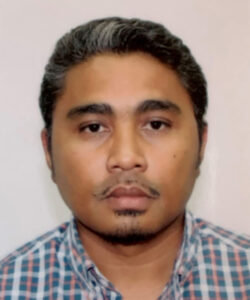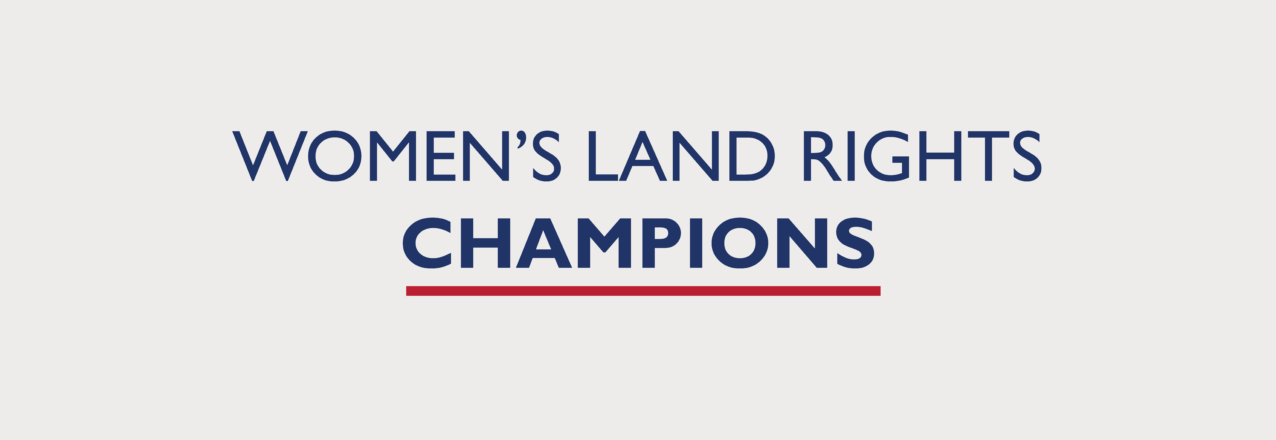This interview with Serge Ramanantsoa, USAID/Madagascar, is part of USAID’s Land and Resource Governance Division’s Women’s Land Rights Champions series, which profiles staff across USAID Missions and operating units who are working to advance women’s land rights.
Tell us about yourself

My name is Ramanantsoa Serge and I hold several roles in the Sustainable Environment and Economic Development (SEED) office: Project Management Specialist / Climate Integration Lead for USAID/Madagascar, the point of contact for the Mission regarding land issues, and activity manager for the Integrated Land and Resource Governance (ILRG) activity in Madagascar. Our USAID SEED office is responsible for all programs related to the preservation and protection of biodiversity, sustainable landscapes, climate change, and the fight against wildlife trafficking while also improving the living conditions of local communities through cooperation with the private sector. In my former work at UN Habitat Madagascar, I investigated land tenure and land planning for slums located around large and medium cities in Madagascar. This experience allowed me to share my knowledge with the ILRG activity to carry out analyses on the complexity of land and resource governance in Madagascar, and then develop a roadmap for land tenure considering women’s access to land and the preservation of watersheds and forests.
Why are women’s land rights and resource governance important to your work? And to other USAID development work?
Women’s land rights and resource governance are important to our work in the Sambirano Valley of Madagascar, and to USAID, because women occupy important roles in the Malagasy community– specifically related to the collection of wood for energy, collection of water, and providing education for children. Yet, women’s access to land and leadership positions are limited by culture and customs in addition to their rights to crucial resources and access to income-generating activities needed to meet their families’ daily needs. This is especially true in the case of single mothers.
One way we work to counter this issue is by ensuring ample participation by women in our development activities and ensuring that there is equal representation of women to men within the target communities that we reach. We also work to build the participation of women in leadership boards of the communities and organizations that we work with, and increase the rates of women’s land ownership.
What are some of the biggest challenges in helping women secure land rights and what are some things being done to overcome them?
The biggest challenges are the exclusionary customs that make it difficult for women to inherit land, and high rates of illiteracy.
To overcome the challenges, USAID/Madagascar conducts educational awareness campaigns on land rights, which has been customized to address the needs of those who are illiterate, to change existing customs and exclusionary mentalities. In addition, we are working on systematic integration of women into local community organizations so they can advance in land acquisition procedures. These activities, as well as others, are reported on the GNDR-2 (Gender Equality/Female Empowerment) indicator, which details the percentage of female participants in U.S. government-assisted programs for the sake of increasing access to productive economic resources (assets, credit, income or employment).
What are some of USAID’s successes in the area of women’s land rights?
Some specific successes so far have been the constitution and promotion of Women Land Leaders (WLL), then the integration of WLL in the consultation, advocacy and decision-making platform (FIVEDISAB “Sambirano Women’s Association”) on land issues in the Sambirano Valley.
FIVEDISAB has developed a plan for monitoring and strengthening its structure and has received support for insertion in the national networking platform with the SIF (national platform of civil society working in land).
There has also been support for the updating and official regularization of administrative documents which improve access to resources (especially land) for women.


